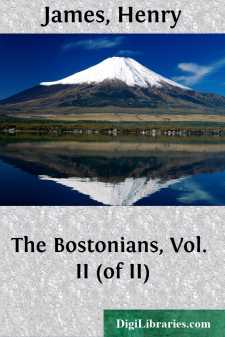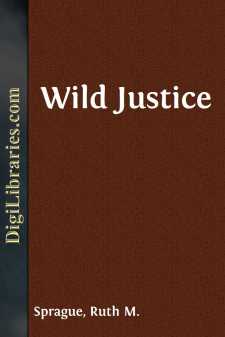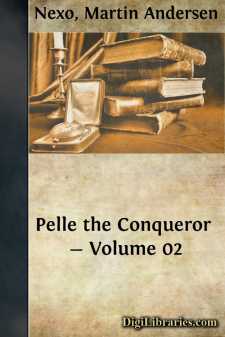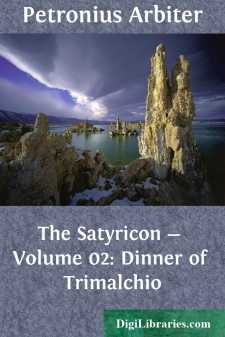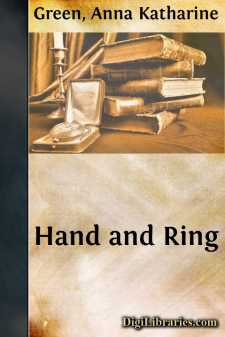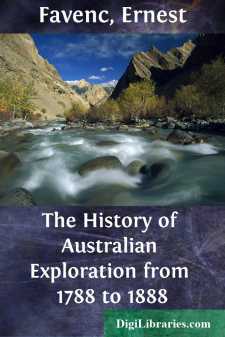Fiction
- Action & Adventure 180
- Biographical 15
- Christian 59
- Classics
- Coming of Age 5
- Contemporary Women 3
- Erotica 8
- Espionage/Intrigue 12
- Fairy Tales, Folklore & Mythology 236
- Family Life 169
- Fantasy 117
- Gay 1
- General 596
- Ghost 32
- Historical 808
- Horror 43
- Humorous 160
- Jewish 25
- Legal 4
- Medical 22
- Mystery & Detective 315
- Political 49
- Psychological 41
- Religious 64
- Romance 159
- Sagas 11
- Science Fiction 730
- Sea Stories 113
- Short Stories (single author) 537
- Sports 10
- Suspense 1
- Technological 8
- Thrillers 2
- Urban Life 31
- Visionary & Metaphysical 1
- War & Military 173
- Westerns 199
Classics Books
Sort by:
by:
Henry James
A little more than an hour after this he stood in the parlour of Doctor Tarrant's suburban residence, in Monadnoc Place. He had induced a juvenile maid-servant, by an appeal somewhat impassioned, to let the ladies know that he was there; and she had returned, after a long absence, to say that Miss Tarrant would come down to him in a little while. He possessed himself, according to his wont, of the...
more...
CHAPTER I INTRODUCTORY—A WORD OF WISDOM, FOUND WRITTEN, LIKE THE MOST ANCIENT, ON LEATHER 'Ah! old men's boots don't go there, sir!' said the bootmaker to me one day, as he pointed to the toes of a pair I had just brought him for mending. It was a significant observation, I thought; and as I went on my way home, writing another such chronicle with every springing step, it filled...
more...
by:
Ruth M. Sprague
GIVE THE DEVIL HER DUE It was going to be a perfect June day. Already a cloudless, azure sky, promising no hint of rain, arched over a shimmering campus. All shades of green were represented and so was every color in the flowers that lined the walks and burst forth from the beds. In perfect compliment, the lovely old brick and stone buildings sat around the campus, complaisant and secure, full of pride...
more...
CHAPTER I When the widow of Martino Consalvi married young Corbario, people shook their heads and said that she was making a great mistake. Consalvi had been dead a good many years, but as yet no one had thought it was time to say that his widow was no longer young and beautiful, as she had always been. Many rich widows remain young and beautiful as much as a quarter of a century, or even longer, and...
more...
CHAPTER FIRST. INTRODUCTION. One bright afternoon, or rather evening, in May, two girls, with basket in hand, were seen leaving the little seaport town in which they resided, for the professed purpose of primrose gathering, but in reality to enjoy the pure air of the first summer-like evening of a season, which had been unusually cold and backward. Their way lay through bowery lanes scented with sweet...
more...
II. APPRENTICESHIP I On that windy May-morning when Pelle tumbled out of the nest, it so happened that old Klaus Hermann was clattering into town with his manure-cart, in order to fetch a load of dung. And this trifling circumstance decided the boy's position in life. There was no more pother than this about the question: What was Pelle to be? He had never put that question to himself. He had...
more...
Having put on our clothes, in the meantime, we commenced to stroll around and soon, the better to amuse ourselves, approached the circle of players; all of a sudden we caught sight of a bald-headed old fellow, rigged out in a russet colored tunic, playing ball with some long haired boys. It was not so much the boys who attracted our attention, although they might well have merited it, as it was the...
more...
A STARTLING COINCIDENCE.By the pricking of my thumbs,Something wicked this way comes.—Macbeth.THE town clock of Sibley had just struck twelve. Court had adjourned, and Judge Evans, with one or two of the leading lawyers of the county, stood in the door-way of the court-house discussing in a friendly way the eccentricities of criminals as developed in the case then before the court. Mr. Lord had just...
more...
by:
Paul Orban
After too many years, T. L. Sherred returns with a story that gets our SPACE SPECIAL rating. It's the story of a man with a headache—who found a cure for it! And the cure gave him more power than any man could dream of. So I had a headache. The grandfather of all headaches. You try working on the roof line sometime, with the presses grinding and the overhead cranes wailing and the mechanical...
more...
by:
Ernest Favenc
Part I Rumours of the existence of a Southern Continent in the Sixteenth Century—JAVE and JAVE LA GRANDE—Authentic Discoveries and visits of the early Navigators—Torres sails between New Guinea and Terra Australis—Voyage of the DUYFHEN in 1606—Dirk Hartog on the West Coast, his inscribed plate—Restored by Vlaming—Afterwards by Hamelin—Nuyts on the South Coast—Wreck of the BATAVIA on...
more...


